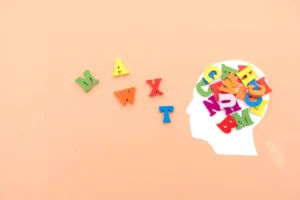How to Support Your Child After a Learning Diagnosis
This article has been researched and written by Dure Najaf. AI has not been used in producing this article.
A learning diagnosis can be intimidating at first, for both parents and children. You could be concerned about what it implies for your child’s future or how to explain it in a way that doesn’t undermine their confidence. However, it is crucial to note that a diagnosis is not a limitation. It’s a tool for determining how your child learns best and how to support them so they can thrive. When you know how to support your child after a learning diagnosis, you empower them to grow confidently with understanding and compassion.
This guide will walk you through emotional, academic, and practical steps to help your child grow with confidence and resilience after a learning diagnosis.
Understanding What the Diagnosis Means
A learning diagnosis does not define your child; rather, it explains why they may learn in a way that is different from the way traditional way taught in schools. It assists educators and parents in determining the most effective ways of teaching for achievement. Dyslexia, ADHD, and dyscalculia do not indicate a lack of intelligence; rather, they reflect differences in how the brain processes information.
Take the time to learn about your child’s condition from credible sources. Consult with specialists — psychologists, pediatricians, or special educators — who can help you navigate therapy and classroom assistance alternatives. The better knowledgeable you are, the more powerful you will feel while helping your child with learning challenges and supporting their progress.
Managing Your Own Emotions
Parents’ initial feelings of guilt, worry, or even confusion are normal. Rather than diminishing you, these feelings are what make you human. The first step in dealing with them is acknowledging their existence.
Consult a counselor who specializes in learning issues or join a parent support group. Be in the company of people who understand your child’s situation. Children pick up on their parents’ composure and confidence, which gives them a sense of security, understanding, and competence. Focusing on proper parenting techniques after a child’s diagnosis allows you to manage your emotions while providing your child with confidence and resilience.
Talking to Your Child About Their Diagnosis
Your child’s self-perception may be impacted by the way you communicate the diagnosis. Make use of age-appropriate language and focus on the advantages rather than the label.
“This just means your brain learns in its own unique way — and that’s something special.”
Be receptive to inquiries. After realizing why they have suffered, some kids could feel relief, while others might get anxious. Ask them how they feel about the diagnosis and what they think about it, and listen to them. Be transparent and respectful in your dealings. When kids realize that their difficulties do not define them, their confidence grows. If you’re unsure how to talk to your child about their diagnosis, focus on honesty, encouragement, and hope.

Building a Strong Support System
You do not have to do this alone. Collaborate with teachers, school counselors, and experts to develop a personalized learning plan, such as an Individualized Education Plan (IEP). By law, children with learning disabilities are entitled to have an IEP, and schools are required to provide support and set both short- and long-term goals to facilitate their learning. Maintain constant communication with educators and therapists to monitor progress and make modifications as required.
You can also find online communities and local networks that offer both emotional support for children with learning differences and practical advice for parents coping with similar challenges.
Supporting Learning at Home
- Developing a routine is one of the most effective ways of coping with a learning disability diagnosis and building a calm, supportive home environment.
- Maintaining consistency is essential. Create a thorough timetable to help your child concentrate. Clear goals, peaceful surroundings, and brief study sessions can all be helpful.
- Make use of educational applications, visual organizers, and audiobooks that are specifically made for kids with learning impairments.
- Recognize the child’s effort and make them aware of their success, no matter how small they may be. Acknowledging improvement and success, whether it’s accomplishing homework without tension or learning a new word, boosts drive.
- Balance study time with creativity, play, and relaxation. Learning should seem manageable rather than burdensome.
Nurturing Confidence and Resilience
Children with learning disabilities flourish when they feel understood, supported, and respected. It is helpful to focus on their hobbies and abilities — art, athletics, construction, storytelling — and tie learning to what they like.
You can also set reasonable objectives and reward effort over perfection. Over time, this method fosters resilience, or the inner sense that “I can handle this.” Parents who focus on providing consistent encouragement, celebrating small successes, and working closely with teachers to adjust learning strategies often notice growth in both confidence and motivation.
Final Thoughts
A learning diagnostic is a beginning, not a setback. Your child may learn new strategies for success in and out of the classroom with time, education, and consistent support. Your level of love and support during the process is more important than how fast they pick things up.
When you – as a parent – focus on understanding learning disability diagnosis through empathy and collaboration, you turn understanding into empowerment — helping your child thrive on their own terms.
Famous People with Dyslexia
Representation matters especially when there is a stigma around dyslexia and learning disabilities in general …
Third Culture Kids: Growing Strong Roots in a Mobile World
In a city like Dubai, it is not unusual to meet a child who has already lived in three countries, attended four different …
What Can I Do If Someone Is Bullying Me at School?
If someone keeps being mean to you, teasing you, hurting you, or leaving you out on purpose, this is called bullying…
Micro-Recovery: TraumaInformed Coping Tools Adults Can Use in Daily Life
Our nervous system is under constant pressure and stimulation. When you add the layer of …
Did You Know – Joyful Memories Can Be a Source of Pain?
I can’t count the number of clients who tell me: “Why does my brain only bring back negative thoughts?” – let’s explore
What Really Happens Behind the Door of Couples Therapy?
Couples don’t usually come to therapy because they stopped caring about each other – they …







